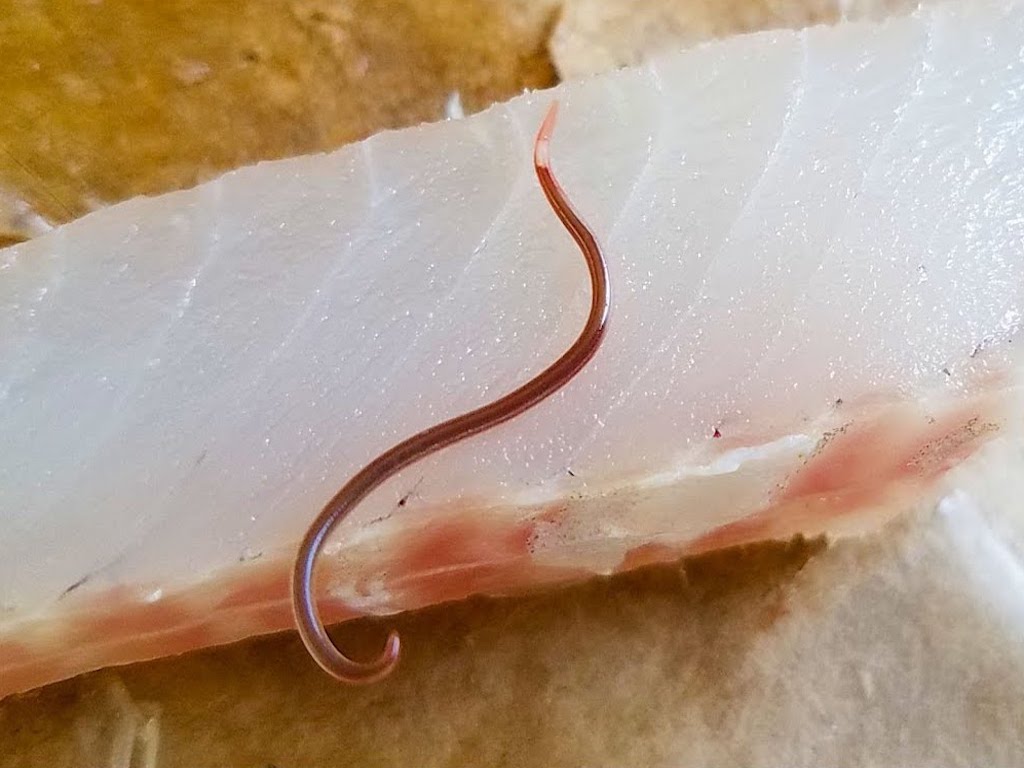3 Mins Read
A new meta-analysis study by a research team at the University of Washington has revealed that fish now contains 283 times more parasitic worms than in the 1980s – which is ingested by humans when consuming raw, smoked or improperly frozen fish. The findings spotlight the health dangers of eating seafood, on top of existing environmental and ethical concerns about the industry.
Published in the journal Global Change Biology, the meta-analysis examines data between 1978 to 2015 on over 56,000 fish across 215 species for Anisakis and Pseudoterranova, known as herring worms. According to the research, fish today now contain a significant 283-fold increase in Anisakis abundance. Humans can become sick when consuming raw, smoked or improperly frozen fish that has been infected by the parasite, with more than 20,000 cases of illness linked to consuming fish reported annually.
The study reveals the health dangers of the mass seafood industry today, adding on more concerns to the already tainted industry. The continued demand for seafood has driven the farmed fish trade, which requires huge amounts of antibiotics to ward off diseases and parasites that can quickly spread in small enclosed fishing pens. While farmed fish is typically marketed as more “sustainable”, the reality is that it still leaves behind environmental damage due to its resource-intensive nature, requiring smaller fish such as sardines and anchovies as fish feed.
Read: Is eating seafood more carbon-friendly than meat?
Other non-farmed species of seafood is accelerating the loss of ocean biodiversity at astonishing rates, damaging not only the hunted species but to all marine life, such as sharks, dolphins and whales caught in by-catch. Scientists predict that by 2050, we could be looking at little or no seafood available left in the ocean.
Furthermore, the seafood industry is linked to the global plastic pollution crisis – which again comes with health implications with plastic entering back into the food chain via seafood consumption. Lost and abandoned fishing nets, lines and traps – known as “ghost nets” – amount to an astonishing 640,000 tonnes of waste across the ocean, which then are ingested by aquatic life, including the species commonly consumed by humans.
Aware of the problems embedded in the fish and seafood industry, a number of food techs are now using cultivated technology as a solution. Avant Meats, a Hong Kong-based startup, is currently developing cell-based fish maw or swim bladder – a prized culinary delicacy in traditional Chinese cuisine, demand for which has driven species extinction and is tainted with traceability issues. The company has so far been able to scale-up a single fish cell into a fish maw product within 6 weeks.
Read: 10 reasons why you should reconsider eating seafood
Singapore’s Shiok Meats, on the other hand, is focused on creating lab-grown shrimp, which again does not contribute species depletion or plastic pollution, and solves the rampant issue of food safety. The company, which was recently named on Fast Company’s list of the top 10 most innovative companies in Asia-Pacific, aims to be able to bring its product to market as soon as next year and has also been working on cell-based crustacean meats such as crab and lobster.
Both cultivated food startups have recently been featured in the Asia Alternative Protein Industry Report, the first in-depth analysis of the cultivated and plant-based meat industry developments in the region. While the report acknowledges that the new protein economy in Asia is still in its nascent stages, the authors are optimistic about the potential for the world’s first commercially cultivated food to launch in the region before the United States or Israel, primarily due to supportive government.
Lead image courtesy of PK / Youtube.




